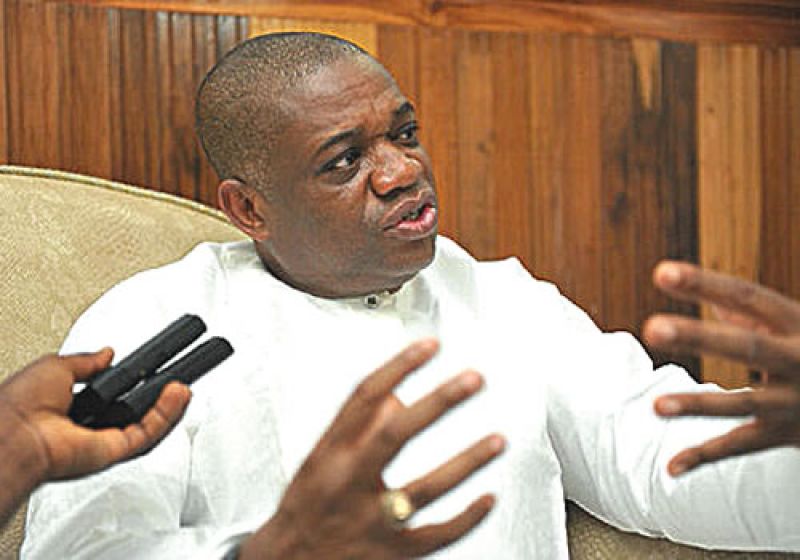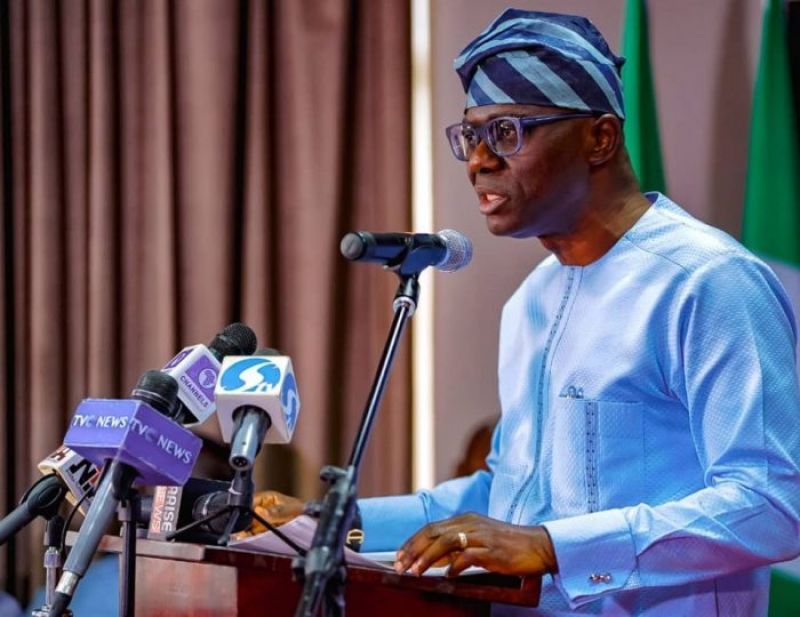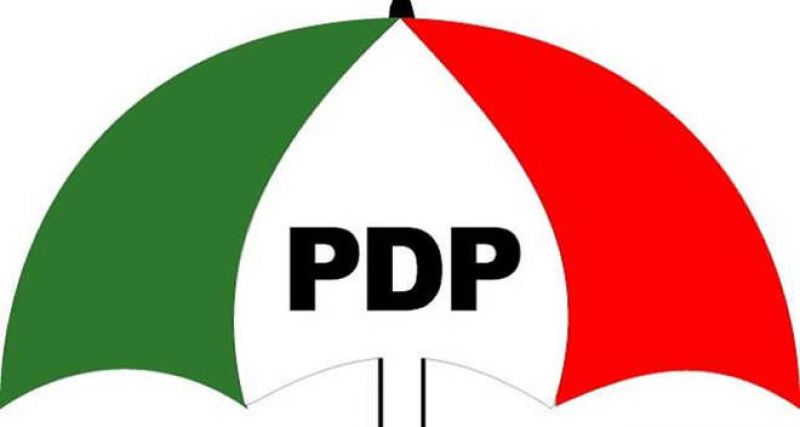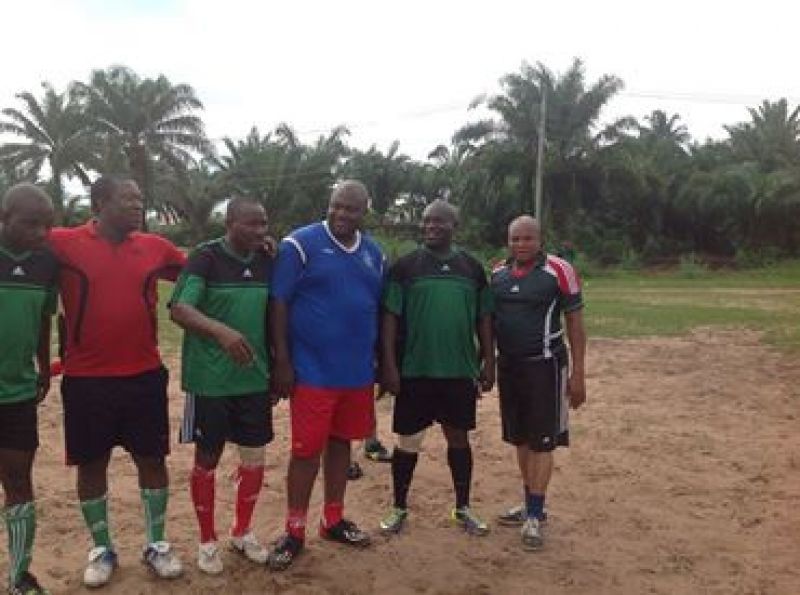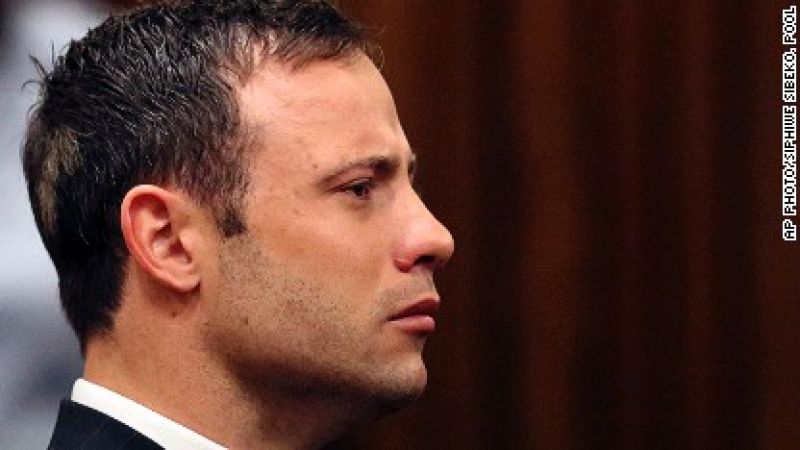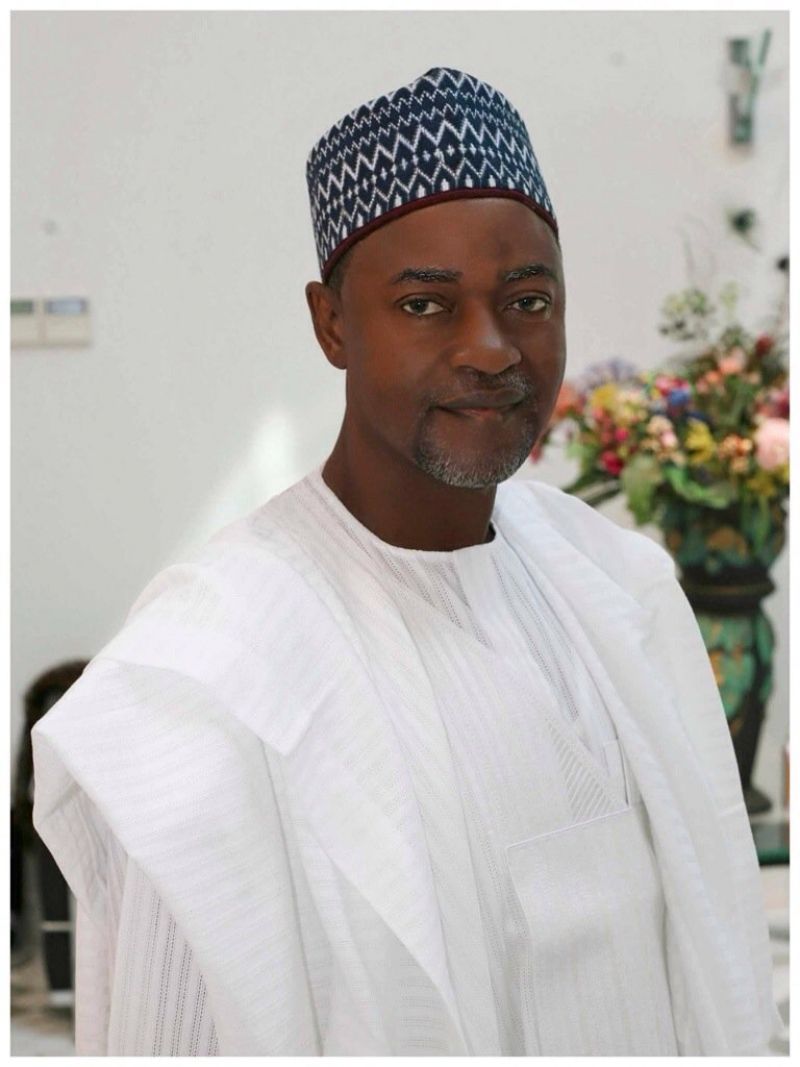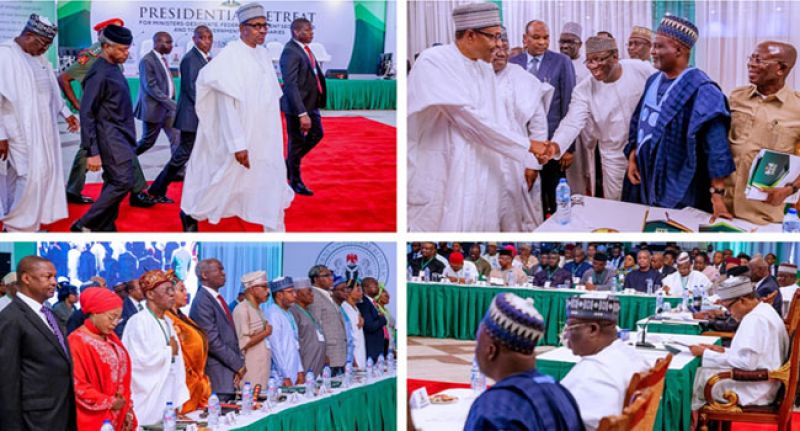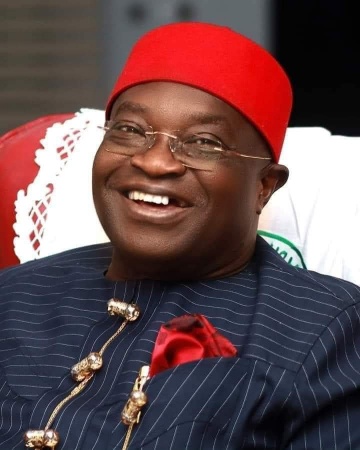Lessons in Leadership and Service (the authorised biography of Dr Michael I. Okpara)
Posted by Elder (Professor) Anya O. Anya | 10 years ago | 4,351 times
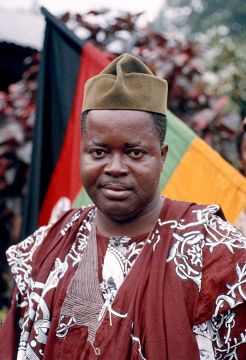
Author: Christian Igodo
Publisher: Ukaristo Digital Press, Abuja, Nigeria.
Let me start on a matter that is not related to this review. It is significant that on the day that this book on Dr Micheal Okpara is being launched is the same day that Nigeria is honouring 100 Nigerians who are presumed have made memorable impact on Nigeria in the last 100 years. On the list are certified thieves but Dr Okpara is not on the list. No one conversant with the history of Nigeria in the I950s and 1960’s will miss the overwhelming impact of Dr M.I. Okpara on the nation. After all by 1964 he was fully in charge of the fastest growing and industrialising economy in the world- the Eastern Nigerian economy. Nothing illustrates the warped sense of history and the complete abandonment of the values of merit and excellence in our national affairs as this wilful omission. And now to the review.
The life of Dr Michael Okpara will make a fascinating and historical story anytime. The surprise for me is that it has taken so long for a full length study of one of the most important men that Nigeria has produced to become available. He was born in December 1920 and died on the 17 December 1984 at the rather young age of 64. But in those 64 years there never was a dull moment and the impact of his life continues to reverberate till today- thirty years later. It is of interest to note that he was born in Umuegwu Okpuala in the Ohuhu clan of present day Abia State and died in the same place sixty four years later after his peregrinations round the world. This is indicative of the fact that he was largely moulded by the environment and circumstances of his birth. At the time of Dr Okpara’s birth Nigeria was merely seven years old, the amalgamation whose centenary we are celebrating today, having taken place in January 1914. It was therefore a period of transition-from the Igbo traditional society to the emerging new colonial society in which new patterns of trade, the new proselytising Christianity and the new forms of education brought by the Christian missionaries were grappling with the old patterns of life of the people. And that contention was evident even in the Okpara household for his father Okpara Asonye was a committed craftsman whose main vocation besides farming and trade was the making of colourful masquerade dresses and we know the significance of masquerades in Igbo traditional society. But he was also one of the early Christian converts who in time was active in the pioneering Christian evangelism of the primitive Methodist church. This dual heritage was an important conditioning factor in the values of the young Michael- an unrepentant and non- apologetic Igboman with a rock solid commitment to the values of the Christian faith of the protestant variety- those values of industry, thrift, enterprise, truth and service to his fellow man which moulded his professional life and later his politics, honed by his practical intellect. The duplicity, deceit and double dealing that passes for politics in our contemporary society had no place in the Okpara dictionary of life and politics. It is therefore not surprising that his politics exuded such disarming courage, candour and commitment.
The book is organised in nineteen chapters that takes us on a journey that encompasses his education, the development of his social conscience including his activism in community and society, his entry into politics and his journey through the party and the government culminating in his emergence first as the premier of Eastern Nigeria and later as the leader of the ruling party, the NCNC, the vanguard of Nigeria’s nationalist struggle. The primary documents which are woven into the text provide important sources for future research.
His education from the Methodist primary school in his village to Methodist College, Uzuakoli less than ten kilo- meters away for his secondary education and his later sojourn in Lagos as a student of the Yaba Higher College- the first centre for tertiary education in Nigeria - provides us with broad a canvass of the factors that shaped his character, values and leadership ethos. For at each of these stages there was always some incident or action that pointed the way to the emergence of an unusual and uncommon leader whose feet were firmly planted into the milieu of the emergent transitional society of colonial and post-colonial Nigeria that he was growing up in.
While at the Yaba Higher College, two tendencies grew as part of his emerging adulthood- a heightened sense of national consciousness which later crystallised into his decision to participate in politics and a growing consciousness to help improve the conditions of the rural poor in his home community. It was the latter factor that nudged him towards his decision to return to his dear Nkwoegwu to practice medicine- after his qualification from Yaba and his brief sojourn in Maiduguri. Indeed later events suggest that this may have been what he shared with the other missionary and medical statesman Dr Akanu Ibiam whom he appointed Governor of Eastern Nigeria when he Okpara became the Premier of Eastern Nigeria. In addition this commitment to the local community drew him into active participation in the Bende Divisional Union which was later to provide him the political platform first in the politics of the NCNC and ultimately in governance and national politics both as Premier and later as party leader. This commitment to the welfare and general improvement in the condition of the people were carried over into the exploration of the ideological foundation of the party when he became the national leader of the NCNC. The party manifesto as reflected in his first speech as national President tilted towards what he recognised as Fabian socialism which he was to amend later as pragmatic socialism. Perhaps, it may be said that the favourable disposition towards an intellectual and dynamic brand of socialism as reflected in fabian socialism predisposed him to the acceptance of free education and the farm settlement projects that he pushed so vigorously during his period as the premier and which became hallmarks of his administration and the foundation of the phenomenal development in the economy of Eastern Nigeria.
The period of Okpara’s stewardship of Eastern Nigeria is truly the golden age of Nigerian development. As I pointed out in a public lecture in 1995, by 1964- five years after Okpara’s ascendancy to the premiership- Eastern Nigeria as recorded by a research group in Michigan State University in the US, Eastern Nigeria was the fastest growing and industrialising economy in the world - ahead of Malaysia, Korea, Taiwan and Singapore. How did this happen? It was the culmination of Okpara’s unique vision in which agriculture and industrial development were the twin pillars on which he built the Eastern Nigerian economy. In agriculture his plans had a two-fold thrust- the development of the farm settlements as the anchor for food crop (such as rice) and poultry development, as well as the establishment of estates of oil palm, cocoa, cashew etc which were processed for export. Alongside the agricultural projects, were numerous industrial projects scattered over the length and breadth of Eastern Nigeria.
In one frenetic burst of energy, a wave of maniacal and frenzied activity was on-going all over Eastern Nigeria. As the book reminds us
“ by January 25, 1963, the Michelin Factory at Port Harcourt was opened. The tyre factory was a USD 3,000,000 undertaking. On March 22, the headquarters building of the Universal Insurance Company was opened in Enugu. On May 10 the Nigeria Gas factory was commissioned at Emene near Enugu. On May 16, the Aluminium Factory at Port Harcourt was opened. On August 24, the Glass factory became operative in Port Harcourt. On October 18, the Asbestos Cement Factory was opened in Emene. On November 9, the foundation of the Central Bank was laid in Port Hacourt. On November 30, the Golden Guinea Breweries was commissioned at Umuahia, for the production of larger beer and allied products. On December 13 Hotel Presidential was opened at a whopping cost of BPS 2,000,000…..The burning fire for industrialisation led to the establishment of the modern ceramic industry in Umuahia, textile mills at Aba and Onitsha and a shoe factory in Owerri.” There was a catalogue of numerous small industries that were also established simultaneously with the major ones during this period.
It was during this period that the first phase of the farm settlements scheme were established- Ulonna in Umuahia province, Ohaji in Owerri Province- Igbariam in Onitsha province, Boki in Ogoja province, Uzo Uwanni in Enugu province, Abak in Annang province. Each was to accommodate over 5,000 farmers and what was remarkable was the scrupulous effort for even spread of the settlements throught the length and breadth of the region. All these activities had been elaborated in his vision for the development of the region after the general elections of 1961. As he stated…the period immediately following the elections was a period for building the economic consciousness of the people”…it is this consciousness and burning desire to raise the standard of living of our people, the unflinching determination to assault poverty from all fronts, that has been distilled into the 1962-68 development plan. Inviting the people as citizens of a democratic region to examine, approve, criticise or condemn any portion of the plan (the plan is the peoples plan) it provides for the development of the small village, it touches on the requirements of the largest city; it caters for the need of the smallest peasant industry and prescribes the means for the mounting of the biggest industries…” what was remarkable in his vision was the appreciation of the role of the private sector. As he observed to achieve rapid economic growth and raise the standard of living of the people, it was necessary that “the private citizens, the ordinary men and women everywhere must participate by taking a fair and equitable share in our development and industrial projects…” He elaborates on this vision when he states
“…..In encouraging and participating in the industries established in the Region, our government was doing so on behalf of the citizens of the Region. It was, as it were, holding its shares on trust for the people. As and when the industries have overcome their teething problems and the risk of failures minimized, government proposes to divest itself of most of its shares and the money realized used in pioneering into new industrial projects…”
Thus, the visionary did not only recognise the role of the government as the steward on behalf of the people but more importantly acknowledged the government’s fiduciary responsibility. It was an incredible display of courage in the midst of rampaging risk factors and the energy to pursue longterm goals on behalf of the people. It was a remarkable demonstration of transparency and accountability. It was a vision that was forty years ahead of its time. These latter values were illustrated by his commitment to participatory democracy as shown in the fact that he inaugurated an annual series of leaders of thought conferences (a total of five in 1960, 1962, 1963 and 1965). A remarkable aspect of his industrialisation plan was the collaboration and cooperation with foreign investors to undertake the large industries such as Michelin Tyre factory in Port Hacourt and the Nkalagu Cement factory in present day Ebonyi state. Indeed in Okpara’s long term vision as he told me in a conversation in his home in Nkwoegwu in 1983 was that Port Hacourt through Aba and Umuahia going on to Enugu would have developed into a globally significant industrial megapolis and conurbation. This drove his passion for the development of the University of Nigeria for which he has not, in my view, been given adequate credit. He provided the money through his prudent management of the resources of the region. If the politics of those times had been better managed, Eastern Nigeria would have been ahead of South Korea, Taiwan and Singapore for we were indeed ahead of these success stories of the second half of the 20th century. What was most remarkable was his spirit characterised by his disarming humility and rock-solid determination to confront all the odds frontally. These were exemplified by his return to medical school after the war!
We cannot end this without recognising the unique strategies he adopted for the management of the government and the instruments he adopted for his far reaching economic programmes. For the latter, the Eastern Nigeria Development Corporation was the engine room for the pursuit of his economic development plans. His management of men and resources was imaginative, innovative and revolutionary. The most remarkable attribute is that after his stint as Premier of Eastern Nigeria he returned to live in his father’s modest bungalow even as some members of his cabinet had vast estates in their hometown and elswhere. That speaks volumes of his integrity.
He had arrow heads who coordinated the activities of the government in addition to the informal agencies of democratic participation. He ceded the day to day running of the party to his old friend Dr L C Mbanugo, the civil service to Sam Oti, the intelligentsia to Professor Kalu Ezera and the economic domain to Odumegwu Ojukwu Snr. These were his kitchen cabinet at it were and beyond the formal structures of the party and the bureaucracy. Thus, he could exercise an inspiring overview to the business of governance through the formal structures of governance, even as he recognised the validity of the informal networks that are the eyes and could invigorate governance. In the final analysis his success ultimately rested on his understanding of his people and the operative environment that had shaped him and his people. He certainly deserves intense study if we are ever going to appreciate where the rain started to beat us given our present circumstances. The book is an honest effort but is riddled with avoidable typographical and other errors but it is a treasure trove of information on the Okpara years and a wistful reminder of what Nigeria could have been. Nevertheless, the vision must survive and endure.
Professor Anya O Anya, PhD (Cambridge) D.Sc (Hon) FAS, OFR, NNOM
Abuja 26 February 2014
Readers Comments
comment(s)
No comments yet. Be the first to post comment.
